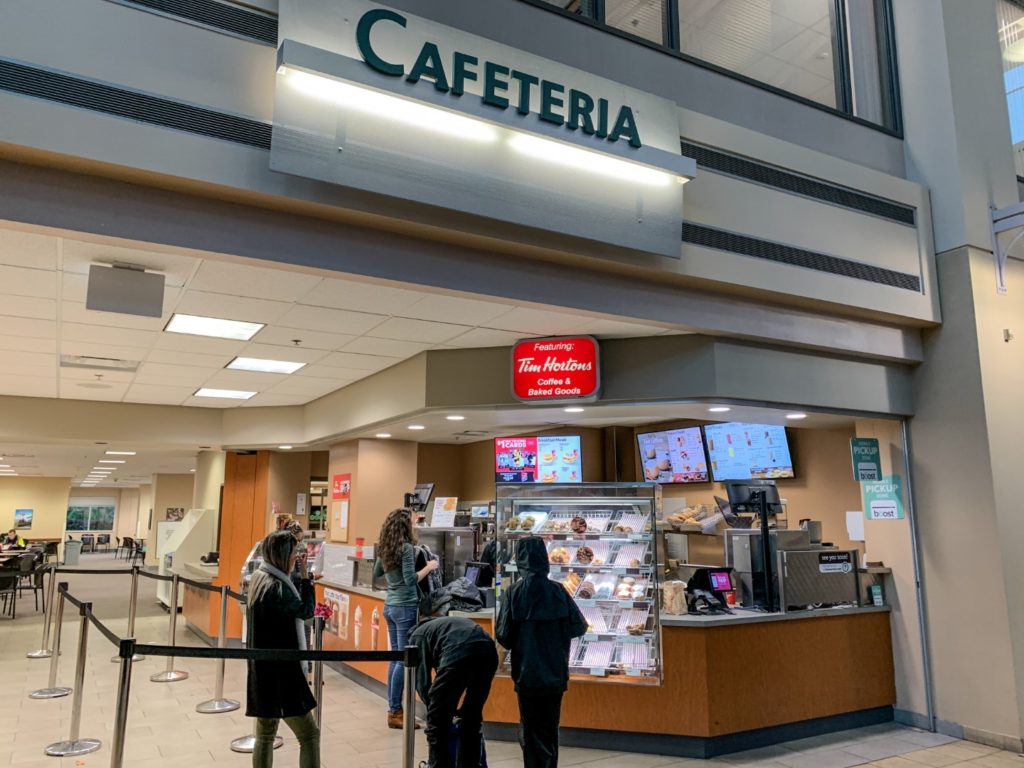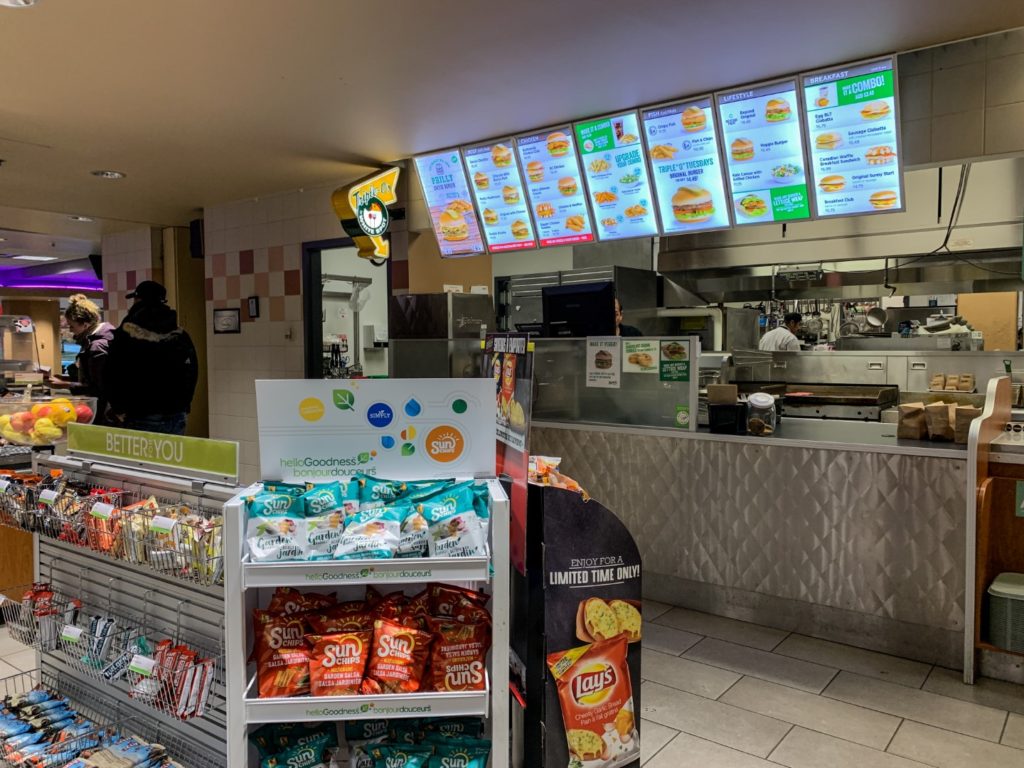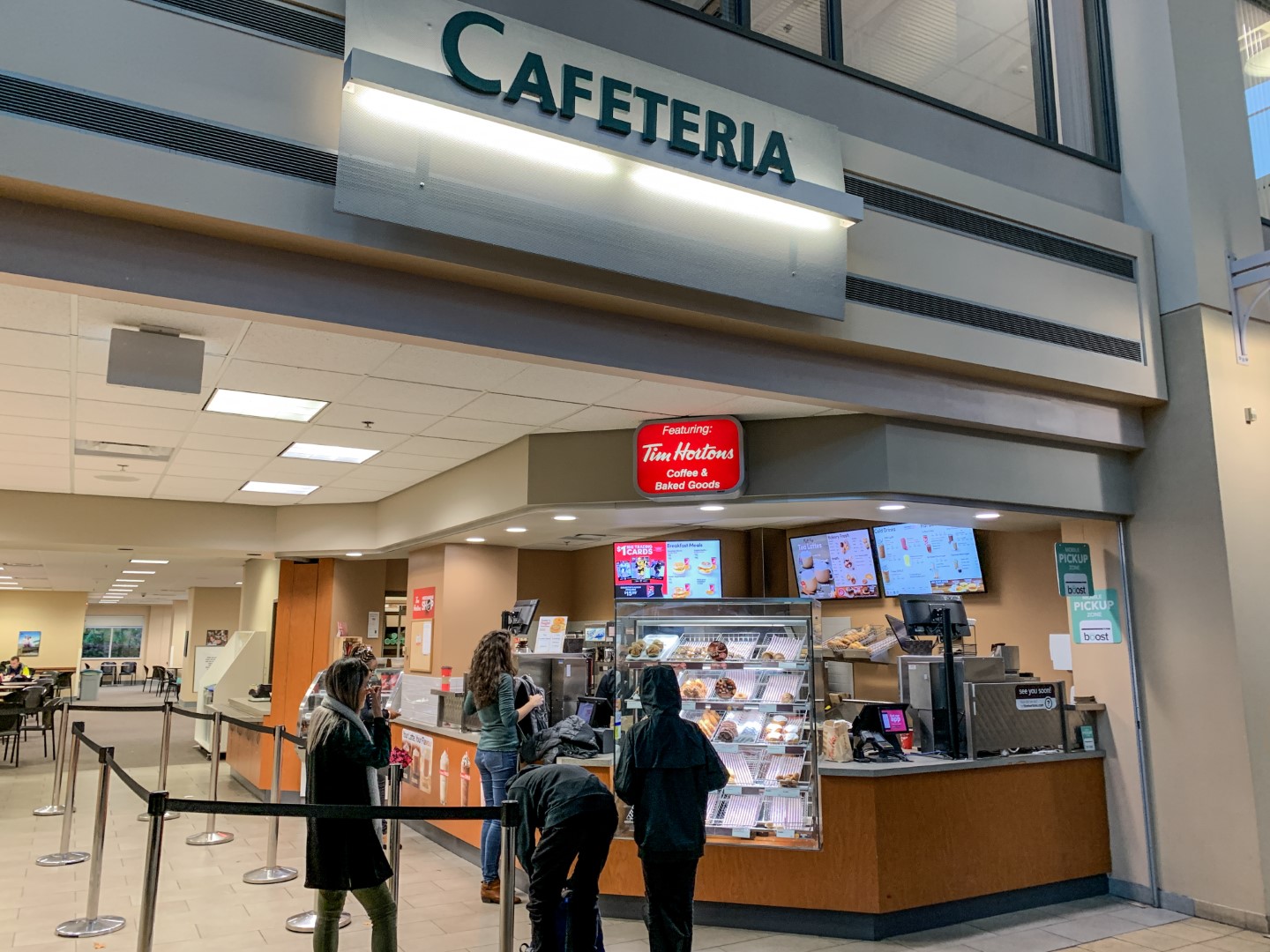
Faulty fridge frustrates food service operator
By Atiba Nelson, Staff Reporter
Although there are many dining establishments close to both the New Westminster and Coquitlam campuses, to students on campus and in a rush, the campus cafeterias are usually the only game in town.
Each campus is outfitted with a cafeteria offering a variety of hot and cold items, as well as Tim Hortons kiosks.
Annually, Douglas’ food services undergo inspections as per the Food Safety Act of BC. Typically, the health authority in charge of regulating food services within their jurisdiction schedules food inspections at random times—without warning to the operators. Every food service establishment in a region that can be accessed by the public must be inspected.
In September, Health inspectors descended on Campus Deli and Tim Hortons on the New Westminster Douglas College campus for their annual inspection.
The health inspector did not identify any critical or non-critical hazards—a list of which can be found within The Food Safety Act—in their examination of the New Westminster campus Tim Hortons, and assigned a risk score of zero, deeming the service low risk.
The campus deli’s inspection was not as fortunate.
During the September surprise visit, the inspection report (DSEA-BG3SZU) noted two critical and one non-critical hazards. The critical hazards—which are acts that can potential harm customers by helping to propagate food-borne illness—included “Adequate handwashing stations not available for employees” due to dead batteries in a soap dispenser, and “Cold potentially hazardous food stored/displayed above 4 °C.” This was because of a faulty two-door pizza prep cooler stored products that needed refrigeration above four degrees.
The cold storage issue led to the Campus Deli throwing out food items and taking precautionary measures—including icing potentially hazardous food items—until the cooler could be repaired, which the health inspector mandated must occur within 48 hours.
The malfunctioning pizza cooler was the source of 8 of the 13 points scored by Campus Deli as the consequences of using non-refrigerated food items is severe.
Despite the warm cold storage unit, Campus Deli was deemed low risk, as their point total missed a ‘moderate’ risk score by three points.
The health inspector noted that the next inspection should occur within the next six months.
Details of past food inspections and the food inspection reports for food retailers servicing both Douglas College campuses can be found at the “food safety” webpage of Fraser Health Authority.

How public health inspections work
Health inspectors, officially called Environmental Health Officers (EHOs), present to a food service operations and examine the premises for health violations, as outlined by the Food Safety Act. Generally, the officers scrutinize the premises for large food safety violation, such as rodents, pest, and improper food storage processes; however, EHOs also ensure the food service establishment has employees trained in food safety courses and can provide consultation and education to food operators.
